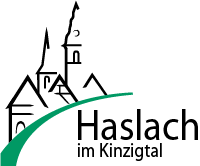Dienstleistungen
Von A bis Z
Bitte klicken Sie auf einen Anfangsbuchstaben, um sich die entsprechenden Dienstleistungen anzuzeigen:
Taking narcotics on trips abroad - applying for a certificate
In principle, narcotics may be taken abroad. The doctor may prescribe narcotics for travel needs for a period of up to 30 days. When preparing for a trip, it is also important to know which country you are travelling to.
When travelling to one of the countries in which the Schengen Agreement applies, a certificate completed by the doctor (in accordance with Article 75 of the Schengen Implementation Convention) must be carried; a separate certificate is required for each BtM.
Important information about the certificate:
- Valid for a maximum of 30 days
- Certification before the start of the journey
An authorised person is not allowed to take narcotics for others, as you are only allowed to take narcotics for your own use.
If a narcotic has been prescribed for you abroad, you may take the amount required for your journey home to Germany.
Responsible department
- for the prescription and the certificate: Your attending physician
- for the certification of the certificate Your local public health office
Details
Prerequisite
- A doctor has prescribed the narcotics for you and
- You have with you on your journey a certified separate certificate in accordance with Article 75 of the Schengen Convention from the prescribing doctor for each narcotic.
Procedure
Travelling to member states of the Schengen area
If you are travelling to a member state of the Schengen area, please contact your doctor. You will receive a certificate from him or her (so-called certificate according to Article 75 of the Schengen Convention) .
The Schengen area includes: Austria, Belgium, Croatia, Czech Republic, Denmark, Estonia, Finland, France, Germany, Greece, Hungary, Iceland, Italy, Latvia, Liechtenstein, Lithuania, Luxembourg, Malta, Netherlands, Norway, Poland, Portugal, Slovakia, Slovenia, Spain, Sweden and Switzerland.
You must have this certificate certified by your local health authority and take it with you on your journey. The certificate is valid for a maximum of 30 days.
You need a separate certificate for each prescribed narcotic.
Travelling to non-Schengen countries
For travel to countries outside the Schengen area, there are no internationally valid regulations for taking narcotics with you.
However, the following procedure is recommended:
Have the prescribing doctor issue a multilingual certificate , which contains information on individual and daily doses, active substance name and duration of the journey. This certificate must also be certified by the local health authority (see above) and must be carried along on the journey.
Furthermore, you should inform yourself about the legal situation in the country of destination or transit before you start your journey. . Some countries require additional import permits, restrict the amount of narcotics to be carried or even generally prohibit the carrying of certain narcotics.
The International Narcotics Control Board has created an information section on its website, where the entry formalities of the individual countries are compiled. However, this page is not yet complete.
Deadlines
None
Required documents
For certification: the medical certificate of prescription and the certificate referred to in Article 75 of the Schengen Convention
Costs
Ask your doctor if there are any costs for the certification.
There is a charge for the certification. You can obtain information from the public health department.
Miscellaneous
Are you travelling to a country that does not allow you to take narcotics with you or to a Schengen state for longer than 30 days?
Check,
- whether the drug you need (or an equivalent product) is available in the country you are travelling to, and
- whether you can possibly obtain a medical prescription for it there
If this is not possible either, you would only be allowed to take the narcotics with you with an import and export licence, which would have to be applied for at the Federal Opium Agency. Due to this very extensive procedure, however, this option will only be available in rare exceptional cases.
Special case: Substitution patients travelling abroad
Special regulations apply to narcotics (especially methadone, levomethadone and buprenorphine) prescribed for substitution treatment of opioid-dependent patients. Provided that this is justifiable from a medical point of view and in accordance with the regulations of the country travelled to, the doctor may hand over to the patient prescriptions of the substitution drug for a quantity required for the duration of the journey - but for a maximum of 30 days.
However, as the carrying of (certain) substitution substances is prohibited or subject to special conditions when entering some countries, the patient should enquire at the respective competent diplomatic representation of the destination country in Germany before starting the journey.
Release note
02.10.2023; Sozialministerium Baden-Württemberg


